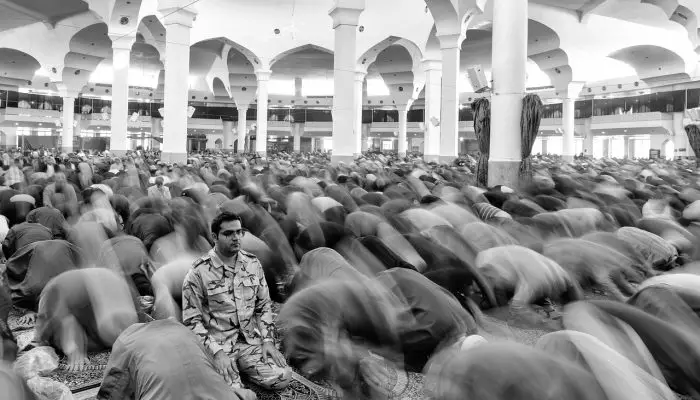What is Social Control? Social Control Theory
Social control is a fundamental concept in sociology that examines how societies regulate the behavior of individuals and groups. It involves the mechanisms, strategies, and institutions that influence conformity to societal norms, values, and rules, while discouraging deviant behavior. Social control is crucial for maintaining order, stability, and cohesion within a society.
Social control can be defined as the processes through which societies maintain order and regulate behavior. It includes both formal mechanisms, such as laws and institutions, and informal mechanisms, such as social norms and values. Social control is essential for promoting cooperation, resolving conflicts, and ensuring the smooth functioning of society.

The concept of social control has been studied and discussed by sociologists and philosophers throughout history. In ancient societies, social control was often enforced through religious beliefs and practices. For example, the Ten Commandments in Judeo-Christian traditions served as a set of moral guidelines for behavior.
In medieval Europe, social control was often maintained through feudal systems, where lords and nobles held power over serfs and peasants. Feudal laws and customs governed social interactions and regulated behavior within the feudal hierarchy.
During the Enlightenment period, thinkers such as John Locke and Jean-Jacques Rousseau explored the idea of social contract theory, which suggested that individuals give up some freedoms in exchange for protection and order provided by society. This concept laid the foundation for modern theories of social control.
In the 19th and 20th centuries, sociologists like Emile Durkheim and Max Weber further developed theories of social control. Durkheim, for example, emphasized the role of social norms and values in maintaining social order, while Weber focused on the role of authority and bureaucracy in regulating behavior.
Overall, historical perspectives on social control have evolved over time, reflecting changes in societal structures, values, and norms. Today, social control continues to be a central focus of sociological research, as societies grapple with issues of crime, deviance, and social change.
Types of Social Control
Social control can be classified into different types based on the nature of the mechanisms and agents involved in regulating behavior. Two key distinctions are formal vs. informal social control and internal vs. external social control.
Formal vs. Informal Social Control
- Formal Social Control: Formal social control refers to the explicit, codified mechanisms used by society to regulate behavior. It is typically enforced by institutions such as the government, law enforcement agencies, and the legal system. Examples of formal social control include laws, regulations, policies, and formal sanctions (e.g., fines, imprisonment). Formal social control is characterized by its official, impersonal nature and its reliance on explicit rules and procedures.
- Informal Social Control: Informal social control refers to the unofficial, implicit mechanisms used by individuals and groups to regulate behavior. It is enforced through social interactions, norms, and values. Informal social control is often more effective than formal control in shaping behavior because it operates on a personal and immediate level. Examples of informal social control include peer pressure, gossip, ridicule, and informal sanctions (e.g., social exclusion, disapproval).
Internal vs. External Social Control
- Internal Social Control: Internal social control refers to the self-regulation of behavior based on internalized norms, values, and beliefs. It involves the individual’s own conscience and sense of right and wrong. Internal social control is often developed through socialization processes during childhood and adolescence, where individuals learn to internalize societal expectations and norms. People who have strong internal social control are more likely to regulate their behavior without the need for external enforcement.
- External Social Control: External social control refers to the regulation of behavior through external factors such as laws, rules, and social sanctions. It is more coercive in nature and relies on external mechanisms to ensure compliance. External social control operates through formal and informal mechanisms and is often used when internal control is weak or ineffective.
Social Control Theory:
Social control theory is a sociological perspective that seeks to explain why individuals conform to societal norms and values. Developed by sociologist Travis Hirschi in the late 1960s, the theory posits that social bonds and attachments play a crucial role in shaping behavior. According to social control theory, individuals are less likely to engage in deviant behavior when they have strong social bonds with family, peers, school, and other social institutions.
Key Concepts of Social Control Theory:
- Attachment:
Attachment refers to the emotional bond that individuals have with others. According to social control theory, strong attachments to family, friends, and community make individuals less likely to engage in deviant behavior because they are concerned about disappointing or harming those they care about.
- Commitment:
Commitment refers to the investment that individuals have in conventional behavior. This could include investments in education, career, or relationships. Individuals who are committed to these conventional goals are less likely to engage in deviant behavior because it could jeopardize their investments.
- Involvement:
Involvement refers to the participation of individuals in conventional activities such as sports, clubs, or community service. Involvement in these activities provides individuals with a sense of purpose and belonging, reducing the likelihood of engaging in deviant behavior.
- Belief:
Belief refers to the acceptance of societal norms and values. Individuals who strongly believe in the moral validity of societal rules are less likely to violate them. Belief acts as a form of internal control, guiding behavior even in the absence of external sanctions.
Applications of Social Control Theory
Social control theory, developed by Travis Hirschi, has been applied to various aspects of society to understand and address issues related to behavior, conformity, and deviance. Here are some key applications of social control theory:
- Crime and Deviance:
- Social control theory suggests that individuals are less likely to engage in criminal or deviant behavior when they have strong social bonds and attachments.
- This application has been used to explain why some individuals are more likely to commit crimes than others, based on their level of attachment to conventional society.
- Interventions based on social control theory focus on strengthening social bonds and attachments to reduce criminal behavior, such as through family support programs, community involvement initiatives, and mentoring programs for at-risk individuals.
- Family and Parenting:
- Social control theory highlights the role of families in shaping behavior through the establishment of norms, values, and expectations.
- Strong family bonds and parental supervision can act as forms of social control that discourage deviant behavior in children and adolescents.
- Parenting programs and family support services can be designed to enhance family cohesion and communication, which are important factors in preventing delinquency and promoting positive behavior.
- Education and Schools:
- Social control theory can be applied to understand the role of schools in promoting conformity and preventing deviance among students.
- Schools act as agents of socialization, instilling societal norms and values in students and promoting a sense of belonging and attachment to conventional society.
- School-based interventions based on social control theory focus on creating a positive school environment, fostering strong teacher-student relationships, and promoting student engagement in academic and extracurricular activities to reduce the risk of delinquent behavior.

Contemporary Issues in Social Control
As society evolves, new challenges arise in the realm of social control. Two prominent contemporary issues include the use of technology for surveillance purposes and the impact of social media on online behavior.
- Technology and Surveillance:
- Advances in technology have made surveillance more pervasive and sophisticated, raising concerns about privacy and civil liberties.
- Governments and private entities use technologies such as CCTV cameras, facial recognition software, and digital tracking devices to monitor individuals’ activities.
- While surveillance can enhance public safety and security, it also raises ethical and legal questions regarding the extent of surveillance and its potential for abuse.
- Social Media and Online Behavior:
- Social media platforms have transformed how people communicate and interact, creating new challenges for social control.
- Social media can amplify both positive and negative behaviors, such as spreading misinformation, cyberbullying, and inciting violence.
- The anonymity and immediacy of social media can lead to impulsive and harmful behaviors, challenging traditional forms of social control.
Addressing Contemporary Issues:
- Balancing Security and Privacy: Society must strike a balance between using surveillance technologies for security purposes while safeguarding individual privacy rights.
- Regulation and Oversight: Governments and regulatory bodies should establish clear guidelines and oversight mechanisms to ensure responsible use of surveillance technologies.
- Digital Literacy and Education: Promoting digital literacy and educating individuals about responsible online behavior can help mitigate the negative effects of social media.
- Ethical Considerations: It is essential to consider the ethical implications of surveillance and social media use, including issues of consent, transparency, and accountability.
Contemporary issues in social control highlight the complex interplay between technology, societal norms, and individual behavior. Addressing these issues requires a multi-faceted approach that considers ethical, legal, and social implications. By understanding and addressing these challenges, society can better navigate the complexities of modern social control.
Conclusion:
In conclusion, social control is a foundational concept in sociology that examines how societies regulate individual behavior to maintain order and stability. Social control theory, developed by Travis Hirschi, emphasizes the importance of social bonds and attachments in promoting conformity and reducing deviance.
Summary of Key Points:
- Social control encompasses formal and informal mechanisms used by society to regulate behavior.
- Formal social control involves explicit rules and institutions, while informal social control relies on social interactions and norms.
- Internal social control is based on individuals’ internalized norms and values, while external social control involves external factors such as laws and sanctions.
- Social control theory highlights the role of attachment, commitment, involvement, and belief in shaping behavior.

